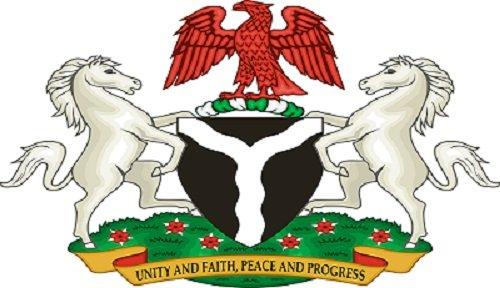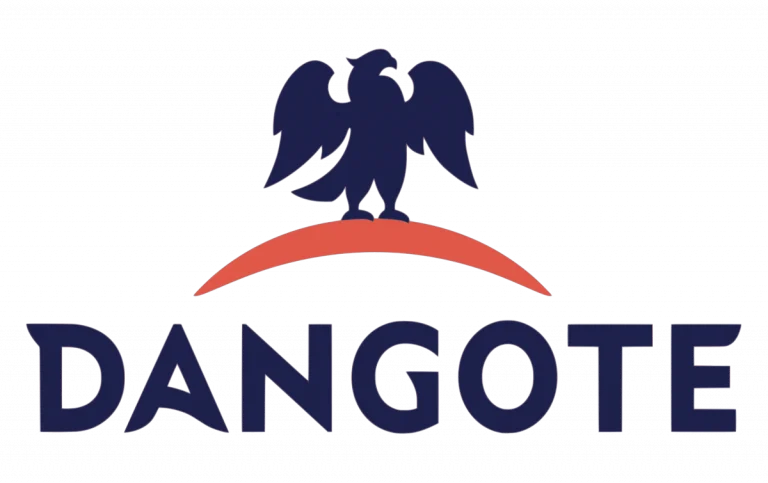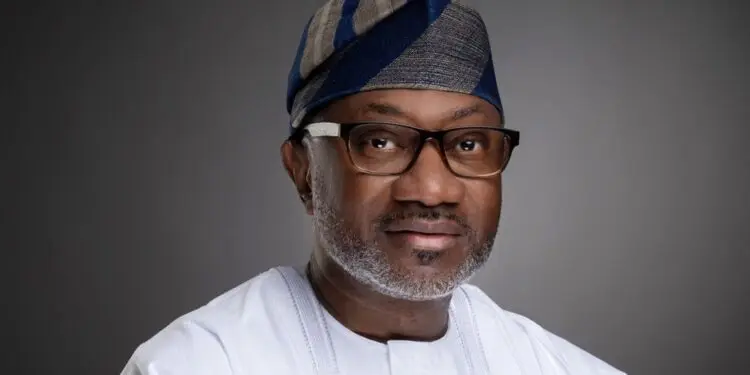Business
FG Bars Online Banks From Accessing Customers’ Photos, Contacts

Loan apps on Play Store will lose their ability to access their users’ contacts or photos from May 31, 2023.
This came as the Federal Government said it would enforce the latest policy by Google, saying the action was consistent with the Nigerian authorities’ move to curtail the invasion of customers’ privacy by loan app firms.
The Federal Government had in recent time taken major decisions aimed at tackling the violation of customers’ privacy by loan apps. Notably, the Federal Competition and Consumer Protection Commission had recently registered 170 loan apps out of the 200 operating in the country.
Google, in its April 2023 policy updates, said the new policy update would provide respite for loan app users in Nigeria and other places that have become accustomed to crude loan retrieval methods employed by a majority of loan apps.
READ ALSO: FG Approves 173 Loan Apps, Bars Illegal Online Banks
Google said, “Policy preview (effective May 31, 2023): This article previews changes included in our April 2023 policy updates.
“We are updating our personal loans policy to state that apps aiming to provide or facilitate personal loans may not access user contacts or photos.
“We are introducing additional requirements for personal loan apps targeting users in Pakistan. Personal loan apps in Pakistan must submit country-specific licensing documentation to prove their ability to provide or facilitate personal loans.”
This new policy is coming after the firm announced updates to its Developer Programme Policy, mandating digital money lenders in Nigeria, India, Indonesia, the Philippines, and Kenya to conform to regulatory rules or be taken down by January 31.
READ ALSO: FG Gets $800m World Bank Grant For Subsidy Palliatives
According to the firm, only digital money lenders that have adhered to and completed the Limited Interim Regulatory/Registration Framework and Guidelines for Digital Lending, 2022 (as may be amended from time to time) by the Federal Competition and Consumer Protection Commission and obtain a verifiable approval letter from the FCCPC will be allowed on Play Store in Nigeria.
Commenting on the new policy to The PUNCH, the Chief Executive Officer of the FCCPC, Babatunde Irukera, stated that it was a welcome development and shows that Google was institutionalising its regulatory policy.
He said, “It is a welcome development effort and is consistent with the position the FCCPC has taken and what we are enforcing.
“Google is now institutionalising our regulatory effort as a policy, which is very welcome. It is certainly important for proper regulatory oversight of the industry, and we commend Google for taking a position that is consistent with our position as regulators.”
READ ALSO: Brain Drain: UK Places Nigeria On Red List For Health Workers’ Recruitment
He added, “Recall that we took this position earlier and what has happened is that Google has looked at the regulatory landscape, looked at the regulatory priorities, and is supporting those priorities by institutionalizing those regulatory priorities and position.”
The FCCPC recently stated that it has approved 173 digital lending applications to operate in the country. 119 of these got full approvals while 54 got conditional approvals. This move became necessary after loan apps started harassing Nigerians by sending defaming messages to their contacts, and more.
The commission’s ‘Limited Interim Regulatory/Registration Framework and Guidelines for Digital Lending 2022’ is an attempt to regulate the digital lending space and make registration and approval a prerequisite for companies seeking to operate in the space.
Although, Google’s policy states that it does not “allow apps that promote personal loans that require repayment in full in 60 days or less from the date the loan is issued,” many loan apps in the country do not adhere to it, exposing many Nigerians to confidential data leak.
Speaking recently on Arise TV on how the recent registration drive of the commission will protect the privacy of Nigerians, Irukera stated, “We also want to restrain what kind of information they are able to pull off people’s phones and what they are able to do with that information, especially with respect to making contact with people on the contact list, and their loan recovery practices; the kind of language the times they call, what kind of things they say.”
Business
NNPCL Announces Restoration Of Escravos-Lagos Pipeline

The Nigerian National Petroleum Company Limited (NNPCL) has announced the complete restoration of the Escravos-Lagos Pipeline System (ELPS) in Warri, Delta State, following the recent explosion on the asset.
The chief corporate communications officer (CCCO) of the nation’s oil company, Andy Odeh, in a statement, said that the pipeline is fully operational, reiterating the company’s resilience and commitment to energy security.
“NNPC Limited is pleased to announce the successful restoration of the Escravos-Lagos Pipeline System (ELPS) in Warri, Delta State.
READ ALSO:Fuel Price Cut: NNPCL GCEO Ojulari Reveals Biggest Beneficiaries
“Following the unexpected explosion on December 10, 2025, we immediately activated our emergency response, deployed coordinated containment measures, and worked tirelessly with multidisciplinary teams to ensure the damaged section was repaired, pressure-tested, and safely recommissioned.
“Today, the pipeline is fully operational, reaffirming our resilience and commitment to energy security. This achievement was made possible through the unwavering support of our host communities, the guidance of regulators, the vigilance of security agencies, and the dedication of our partners and staff.
“Together, we turned a challenging moment into a success story, restoring operations in record time while upholding the highest standards of safety and environmental stewardship.
“As we move forward, NNPC Limited remains steadfast in its pledge to protect our environment, safeguard our communities, and maintain the integrity and reliability of our assets. Thank you for your trust as we continue to power progress for Nigeria and beyond,” the statement read.
Business
Dangote Unveils 10-day Credit Facility For Petrol Station Owners

The Dangote Group has announced a 10-day credit facility backed by a bank guarantee for petrol station owners and dealers, alongside free direct delivery and other incentives, as part of a new supply arrangement.
The company disclosed this in a statement posted on its official X handle on Tuesday, inviting petrol station operators across the country to register to benefit from the offer.
According to the statement, participating dealers will enjoy “a 10-day credit facility backed by a bank guarantee,” with a minimum order requirement of 5,000 litres.
“Our free direct delivery service will commence soon,” the group said, adding that the offer is open to “all petrol station owners and dealers.”
READ ALSO:Dangote Sugar Announces South New CEO
The Dangote Group further called on operators to register their stations to access the supply arrangement.
“Register your petrol stations today to benefit from our competitive gantry price,” the statement read.
The company also disclosed that petrol supplied under the arrangement will be sold at a gantry price of ₦699 per litre.
For enquiries, the group provided the following contact numbers: 0802-347-0470, 0809-324-7070, 0809-324-7071 and 0203.
READ ALSO:Dangote Refinery Dispute: PENGASSAN Suspends Strike After FG Intervention
The announcement follows a recent petrol price adjustment by the Dangote Petroleum Refinery.
The PUNCH earlier reported that the refinery reduced its ex-depot petrol price from ₦828 to ₦699 per litre, representing a ₦129 cut or a 15.58 per cent reduction.
An official of the refinery, who spoke to PUNCH Online on condition of anonymity, confirmed the adjustment, saying, “The refinery has reduced petrol gantry price to ₦699 per litre.”
The new price reportedly took effect on December 11, 2025, marking the 20th petrol price adjustment announced by the refinery this year.
Business
JUST IN: Otedola Sells Shares In Geregu Power For N1trn

Billionaire businessman, Femi Otedola, has sold his majority stake in Geregu Power Plc for N1.088 trillion in a deal financed by a consortium of banks led by Zenith Bank Plc.
The Nigerian Exchange, NGX, made this announcement on Monday.
Otedola’s Amperion Power Distribution Company Ltd reportedly held nearly 80 percent of the power generating company.
READ ALSO:N200b Agric Credit Dispute: Appeal Court Slams NAIC, Upholds First Bank Victory
With this new development, Otedola, Chairman of First Holdco Ltd, parent company of First Bank of Nigeria Plc, will reportedly now concentrate on expanding his interest in the Nigerian banking sector, although he still retains some shares in Geregu.
Otedola is said to currently own 17.01 percent of First Bank — its single largest shareholder since the bank was established in 1894.

 Headline23 hours ago
Headline23 hours agoPROPHECY: Primate Ayodele Reveals Trump’s Plot Against Tinubu

 News22 hours ago
News22 hours agoWhat I Saw After A Lady Undressed Herself — Pastor Adeboye

 Metro1 day ago
Metro1 day agoJoint Task Force Kills 23 Bandits Fleeing Kano After Attacks

 Politics1 day ago
Politics1 day agoWhy Kano Governor Postponed Formal Defection To APC

 Metro22 hours ago
Metro22 hours agoArmed Robbers Shot PoS Operator To Death In Edo

 Politics23 hours ago
Politics23 hours ago2027: Rivers APC Pledges To Follow Wike’s Instructions

 News23 hours ago
News23 hours agoReps Release Four Tax Acts For Public Records

 Metro22 hours ago
Metro22 hours agoGunmen Demand N200m Ransom For Kidnapped Brothers In Edo

 Entertainment23 hours ago
Entertainment23 hours agoAnthony Joshua Returns To UK In Private Jet

 News23 hours ago
News23 hours agoMissing N128bn: SERAP Demands Probe Into Power Ministry, NBET Expenditures




















